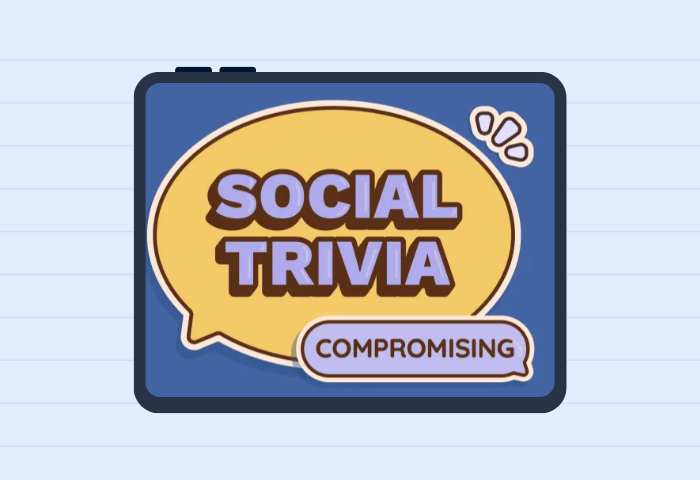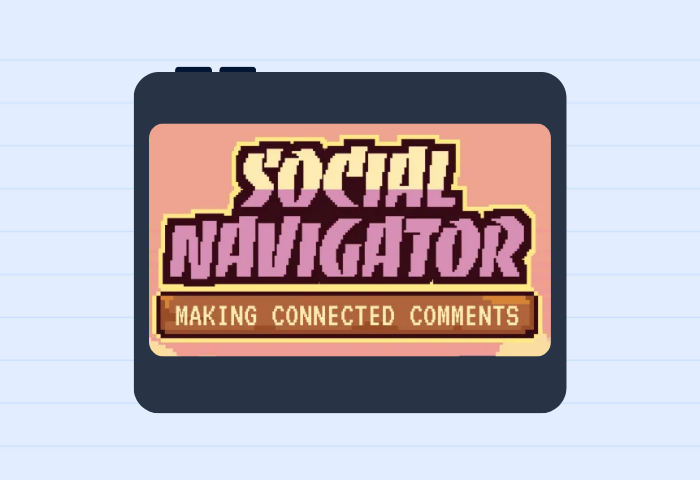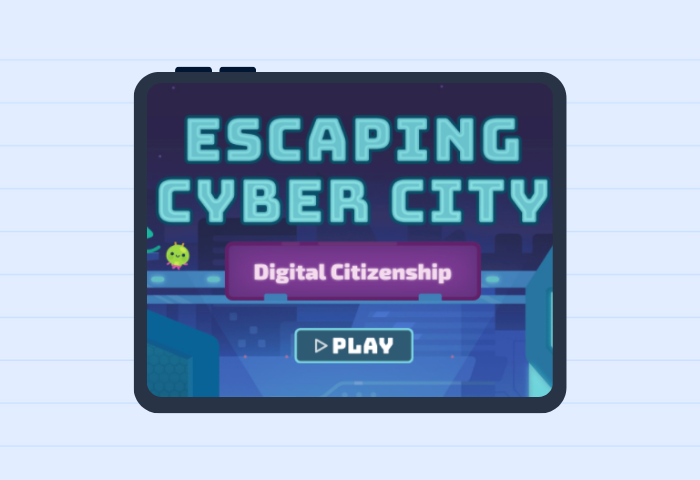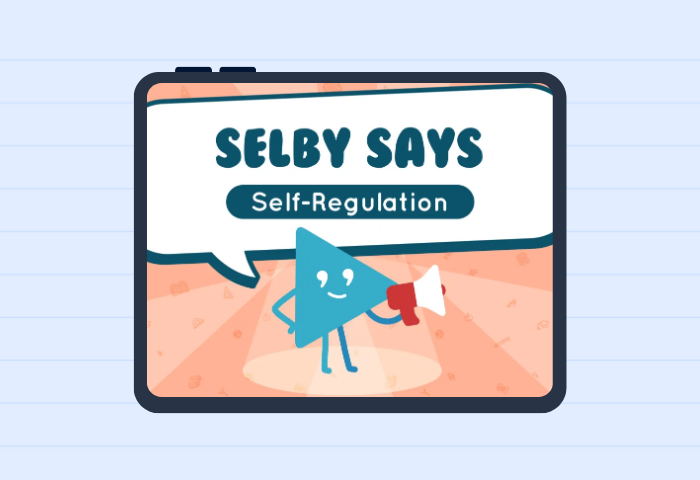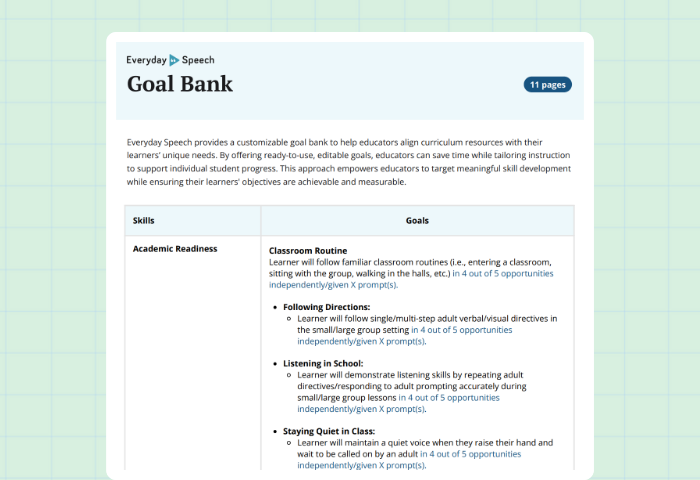60+ Best Children’s Books for Social Skills
Get free social skills materials
No-prep lessons on self-regulation, emotional recognition, conversation skills, and more.
Sign up hereTeaching kids to read and write is important, but helping them build social skills like sharing, empathy, and problem-solving is what makes classrooms truly work. For many students, especially those in special education or receiving support through MTSS, these skills don’t come automatically. They need to be modeled, practiced, and reinforced in meaningful ways.
Related resources:
That’s where children’s books for social skills make all the difference. Stories give kids the chance to see skills in action, whether it’s a character calming down after a setback, finding the courage to speak up, or learning how to be a good friend. By weaving literature into your daily routines, you create natural opportunities for discussion, reflection, and practice.
This guide brings together 60+ of the best children’s books for social skills, organized by grade level and skill area. Each title includes a short description and teacher favorites to help you choose the right book for your lesson, your morning meeting, or your social skills group. Whether you’re building a classroom library or looking for specific books for social skills instruction, this list is designed to save you time and give your students the tools they need.
Pre-K: Children’s Books for Social Skills Foundations
At the Pre-K level, children are just beginning to recognize emotions, interact with peers, and understand classroom routines. This makes it the perfect stage to introduce children’s books for social skills that are simple, visually bold, and easy to repeat. The best books for social skills in Pre-K use familiar scenarios, like taking turns, handling big feelings, or joining play, so little learners can connect what they see in the story to their own daily experiences. These early read-alouds not only capture attention but also lay the foundation for empathy, self-regulation, and safe decision-making.
Self-Awareness
- Glad Monster, Sad Monster by Ed Emberley & Anne Miranda: A playful, hands-on book where kids use colorful monster masks to act out emotions. It gives students a fun way to recognize and name their own feelings.
- I Like Myself by Karen Beaumont: With joyful rhymes and bright illustrations, this story celebrates self-acceptance and individuality. Perfect for building confidence in even the youngest learners.
More picks: The Color Monster by Anna Llenas introduces kids to sorting and labeling emotions; I Can Be Anything! by Jerry Spinelli celebrates imagination and identity.
Self-Management
- Breathe Like a Bear by Kira Willey: A collection of kid-friendly mindfulness practices. Each short breathing exercise teaches calming strategies that children can practice in the moment.
- Calm Down Time by Elizabeth Verdick: Offers step-by-step strategies, paired with visuals, to help preschoolers calm down.
More picks: The Rabbit Listened by Cori Doerrfeld models how empathy helps with problem-solving; I Can Do Hard Things by Gabi Garcia offers affirmations that teach resilience.
Social Awareness
- All Are Welcome by Alexandra Penfold: A beautifully inclusive story that celebrates diversity in the classroom. It shows students that everyone belongs.
- What If Everybody Did That? by Ellen Javernick: Uses humor and exaggeration to show why rules and routines matter, helping kids see how small actions affect the group.
More picks: Strictly No Elephants by Lisa Mantchev offers a metaphor about friendship and inclusion; Eyes That Kiss in the Corners by Joanna Ho embraces cultural pride and uniqueness.
Relationship Skills
- How Do Dinosaurs Play With Their Friends? by Jane Yolen: Silly dinosaur misbehavior paired with positive alternatives shows kids how to play respectfully.
- Llama Llama Time to Share by Anna Dewdney: Follows Llama as he learns to share with a new friend, showing that play is more fun when we include others.
More picks: Should I Share My Ice Cream? by Mo Willems, about friendship and generosity with Elephant & Piggie; Bear Feels Scared by Karma Wilson shows how friends support each other in tough times.
Responsible Decision-Making
- Jabari Tries by Gaia Cornwall: Jabari faces frustration when his invention doesn’t work. The story highlights persistence, problem-solving, and asking for help.
- What Should Danny Do? School Day by Ganit & Adir Levy: A choose-your-own-adventure format that lets kids explore the consequences of their choices in school.
More picks: Not Now, Cow by Tammi Sauer is about patience and timing; The Pigeon Has to Go to School! by Mo Willems is about overcoming fears and making brave choices.
Lower Elementary: Best Books for Social Skills and Friendship
In grades K–2, students are learning how to balance growing independence with the demands of friendships and school expectations. Conflicts over playground games, worries about fitting in, and the challenge of managing big emotions all become more common at this stage. That’s why this is such an important time to bring in children’s books for social skills.
Self-Awareness
- In My Heart: A Book of Feelings by Jo Witek explores emotions from happy to sad to shy, giving kids the words they need to talk about how they feel inside.
- All the Ways to Be Smart by Davina Bell celebrates creativity, kindness, and curiosity alongside academics. A confidence boost for kids who may not see themselves as “smart” in traditional ways.
More picks: The Magical Yet by Angela DiTerlizzi introduces a growth mindset through perseverance; My Mouth Is a Volcano! by Julia Cook teaches impulse control and respect.
Self-Management
- Even Superheroes Have Bad Days by Shelly Becker shows how even heroes lose their temper, but they find healthy ways to calm down. Kids learn safe coping strategies.
- Ruby Finds a Worry by Tom Percival is a gentle, reassuring story about naming and shrinking worries by sharing them with others.
More picks: When Sophie Gets Angry–Really, Really Angry by Molly Bang is a classic for big feelings; A Little Spot of Anger by Diane Alber provides concrete visuals for self-regulation.
Social Awareness
- We’re All Wonders by R.J. Palacio: Based on the novel Wonder, this picture book teaches empathy by helping students see beauty in differences.
- Last Stop on Market Street by Matt de la Peña: A boy and his grandmother notice beauty in their diverse community, encouraging gratitude and awareness.
More picks: The Day You Begin by Jacqueline Woodson is about showing courage when you feel different; The Invisible Boy by Trudy Ludwig shows empathy for kids who feel left out.
Relationship Skills
- Stick and Stone by Beth Ferry: A simple but powerful story about standing up for friends and the value of loyalty.
- How Full Is Your Bucket? For Kids by Tom Rath & Mary Reckmeyer: Introduces the idea that our words and actions “fill” or “dip” into others’ emotional buckets.
More picks: The Cool Bean by Jory John is about repairing friendships; Each Kindness by Jacqueline Woodson highlights the impact of unkind choices.
Responsible Decision-Making
- Speak Up, Molly Lou Melon by Patty Lovell: Molly Lou shows how to speak up for what’s right, even when it’s tough.
- What Do You Do With a Problem? by Kobi Yamada: Encourages kids to face problems head-on and see them as opportunities.
More picks: The Bad Seed by Jory John is about transformation and responsibility; What Should Darla Do? by Ganit & Adir Levy provides interactive decision-making for kids.
Upper Elementary: Children’s Books for Social Skills Growth
By grades 3–5, children are developing a stronger sense of identity and independence. Peer pressure, academic challenges, and shifting friendships can make this stage especially tricky to navigate. That’s why the best books for social skills at this level are so valuable, as they give students safe ways to explore complex issues like fairness, empathy, and resilience.
Self-Awareness
- The Name Jar by Yangsook Choi: A moving story of cultural identity, belonging, and the courage to be yourself.
- Absolutely Almost by Lisa Graff: A heartfelt novel about a boy learning to value himself beyond academics, highlighting self-acceptance.
More picks: Wonder by R.J. Palacio builds empathy and identity awareness; Starfish by Lisa Fipps is about body positivity and self-advocacy.
Self-Management
- How to Take the Grrrr Out of Anger by Elizabeth Verdick & Marjorie Lisovskis offers concrete anger management strategies for kids.
- Fish in a Tree by Lynda Mullaly Hunt follows a girl with dyslexia as she discovers resilience and confidence with the help of a caring teacher.
More picks: New Kid by Jerry Craft is about navigating stress in a new school; The Confidence Code for Girls by Katty Kay & Claire Shipman provides strategies for bravery.
Social Awareness
- Each Kindness by Jacqueline Woodson: A powerful reminder about the importance of small acts of kindness and the regret of missed opportunities.
- Save Me a Seat by Sarah Weeks & Gita Varadarajan: Two boys from different cultures learn empathy and understanding through an unlikely friendship.
More picks: Front Desk by Kelly Yang highlights immigrant family experiences; A Long Walk to Water by Linda Sue Park provides perspective for global empathy and resilience.
Relationship Skills
- Enemy Pie by Derek Munson: A boy learns how spending time with someone can turn an enemy into a friend.
- Because of Mr. Terupt by Rob Buyea: A teacher helps his class build empathy and community through shared experiences.
More picks: Raymie Nightingale by Kate DiCamillo provides insights into complicated friendships; The Misfits by James Howe is on teamwork and belonging.
Responsible Decision-Making
- Those Shoes by Maribeth Boelts: A boy realizes that kindness and empathy matter more than fitting in with trendy shoes.
- The Lemonade War by Jacqueline Davies: A sibling rivalry teaches fairness, honesty, and the consequences of impulsive decisions.
More picks: Restart by Gordon Korman is on second chances and accountability; Out of My Mind by Sharon Draper tells the story of courage and advocacy.
Practical Ways to Use These Children’s Books for Social Skills
Adding children’s books for social skills into your daily routine doesn’t need to be complicated. A few intentional minutes with the right story can spark meaningful growth in empathy, communication, and problem-solving. Here are some simple ways to make these titles part of your classroom culture:
- Morning Meetings: Begin the day with a short read-aloud tied to your weekly skill focus, like managing worries or practicing kindness. A consistent routine of reading and reflecting builds community and reinforces the importance of social skills.
- Small Groups: Use targeted books for social skills with students who have IEP goals around communication, self-regulation, or friendship skills. In Tier 2 and Tier 3 MTSS groups, pairing a story with role-play or discussion makes skills more concrete and gives learners a chance to practice in a safe setting.
- Calm Corners: Stock your regulation spaces with picture books that model emotional control and problem-solving. When a student needs a break, these stories provide language and strategies for calming down, helping them return ready to learn.
- Home Connections: Extend the impact beyond school by sharing booklists with families. Parents and caregivers can use the same best books for social skills to reinforce strategies at home, building consistency between school and families.
Final Thoughts
The best books for social skills aren’t just stories to pass the time… They are tools that shape the way children understand themselves and others. With relatable characters and realistic scenarios, these titles give students a framework for navigating challenges, building friendships, and regulating emotions.
Whether you’re reading with Pre-K students who are just learning to name their feelings, or guiding upper elementary kids through conflicts and peer pressure, these children’s books for social skills provide the words, models, and strategies students need to thrive.
When paired with intentional teaching practices, books become more than entertainment. They create shared language for empathy, resilience, and communication, which are the foundations of a positive classroom community.
Ready to bring these lessons to life? Everyday Speech offers ready-to-use videos, activities, and teaching tools designed to pair seamlessly with these books for social skills. Start your free 30-day trial today and give your students the resources they need for success.

